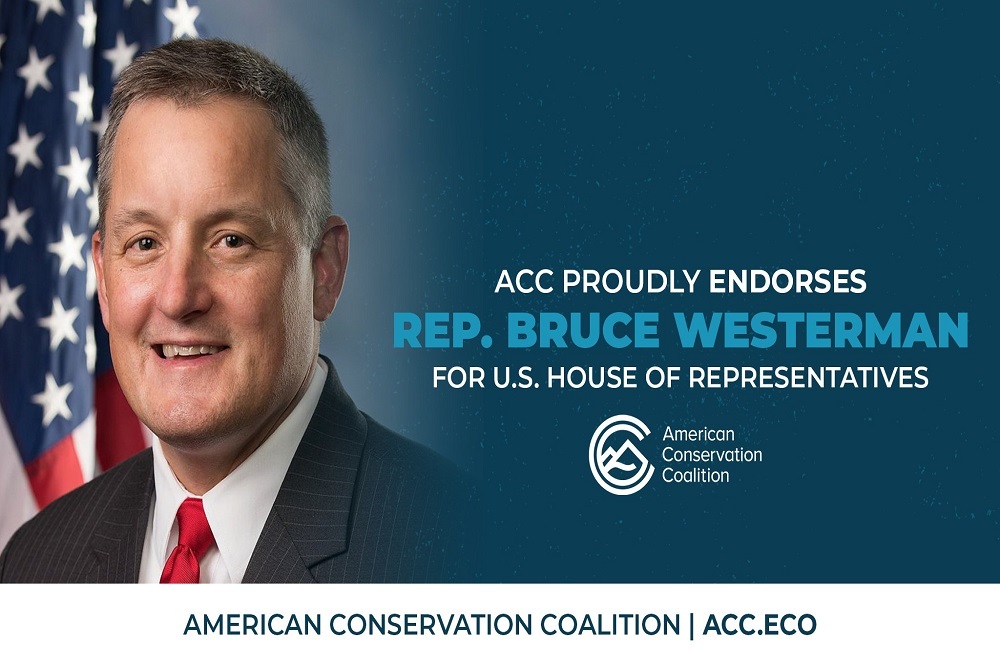This week, Congressman Bruce Westerman (AR-04), Ranking Member of the House Natural Resources Committee, and Congresswoman Jan Schakowsky (IL-09), a Senior Chief Deputy Whip and Chair of the Energy and Commerce Consumer Protection and Commerce Subcommittee reintroduced the Price Relief, Innovation, and Competition for Essential Drugs (PRICED) Act to make prescription drugs more affordable and accessible for Americans across the nation.
The bicameral PRICED Act, the first version of which was introduced in the Senate in 2016 by Senators Sherrod Brown (D-OH) and the late John McCain (R-AZ), addresses increasing drug prices by reducing drug manufactures’ exclusivity periods for biologics from twelve years to five years.
“Low cost and widely available medications and treatments are vital to the continued wellbeing of millions of Americans,” said Congressman Westerman. "The PRICED Act is critical in making prescription drugs more affordable by breaking up manufactures’ monopoly on certain drugs and allowing other companies to create generic versions at a lower cost to the patient. I'm grateful to join Rep. Schakowsky's work on this issue – we’re proof that health care solutions can and should be bipartisan.”
“Drug pricing isn’t a partisan issue and taking on the Big Pharma monopoly shouldn’t be either. I am proud to be joined by Congressman Westerman to reintroduce the PRICED Act, which will make prescription drugs more affordable and accessible for Americans across the nation,” said Congresswoman Schakowsky. “During the health care debate in 2010, we fought hard to reduce the number of years that manufacturers of the newer, more expensive biologic drugs can maintain patent exclusivity, which keeps competitors from putting lower cost drugs on the market. Unfortunately, it still granted twelve years of exclusivity that has allowed biologics manufacturers to enjoy billions of dollars in profits and no competition. That is unacceptable for American taxpayers who fund the majority of research that develops these drugs and who need these drugs to survive. I will fight to finally pass the PRICED Act in the 117th Congress.”
In 2017, all of the top 10 highest-expenditure drugs in Medicare Part B were biologic products, accounting for over $10 billion in costs. That same year, the Office of Management and Budget estimated that reducing the exclusivity from 12 to 7 years could save almost $7 billion over 10 years.
Many recent peer-reviewed studies suggest that biologics are not as time-consuming to develop as initially believed. In 2019, authors from the Program On Regulation, Therapeutics, And Law (PORTAL), Division of Pharmacoepidemiology and Pharmacoeconomics, Department of Medicine, Brigham and Women’s Hospital, and Harvard Medical School published a study in Nature that concluded “although biologics are often thought to be more time-consuming to develop than small-molecule drugs, development times for biologics are similar to, or possibly somewhat shorter than, for small-molecule drugs.” Additional reports show that there is no difference in the median premarket development time between biologics and small molecule drugs that would justify the 12 years of data exclusivity that biologics currently retain.
The Representatives were joined by Representatives Ro Khanna (CA-17), Lloyd Doggett (TX-25), Rosa DeLauro (CT-03), Mark Pocan (WI-02), Marcy Kaptur (OH-09), and Jesús G. "Chuy" García (IL-04).
Original source can be found here.


